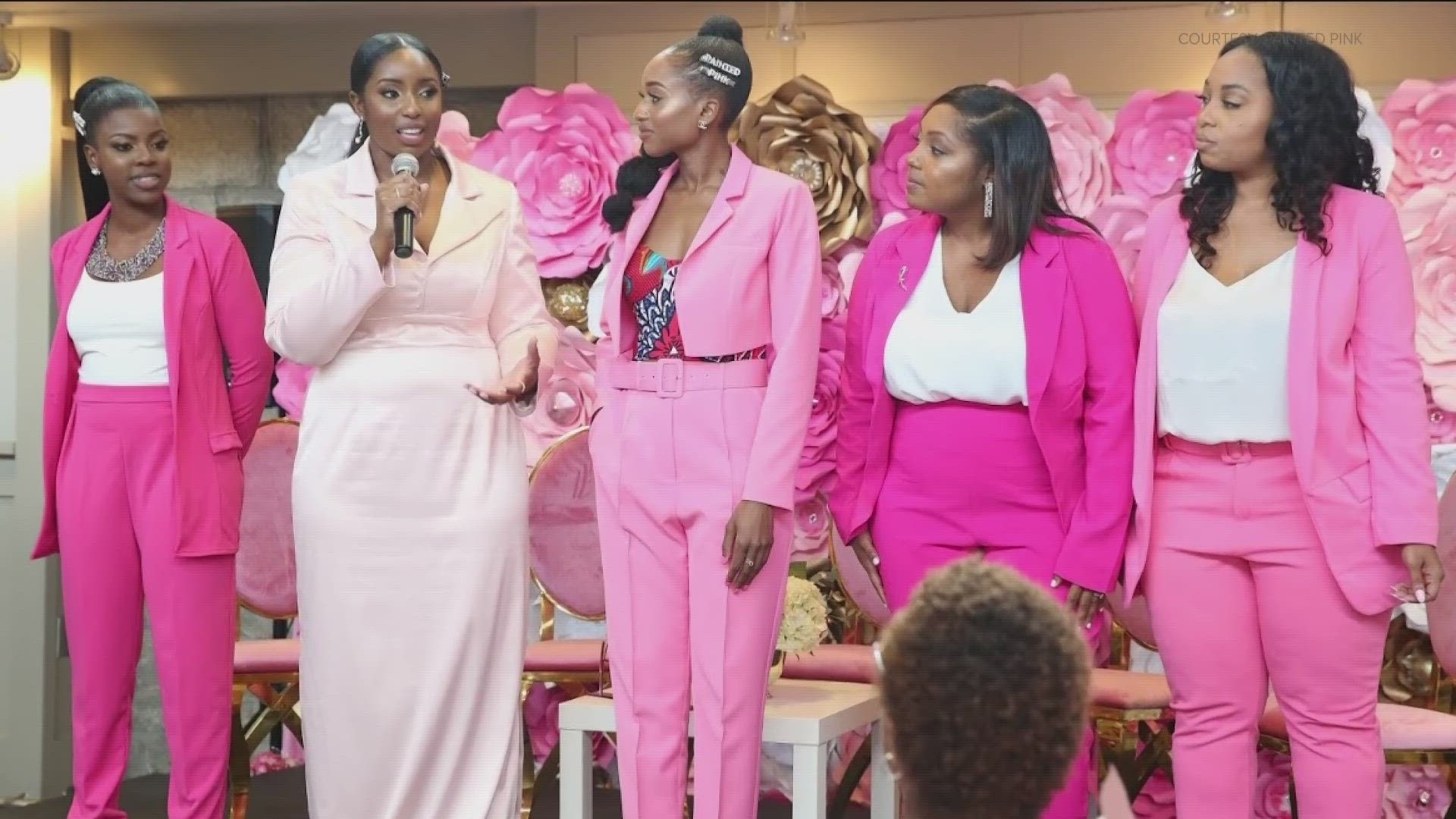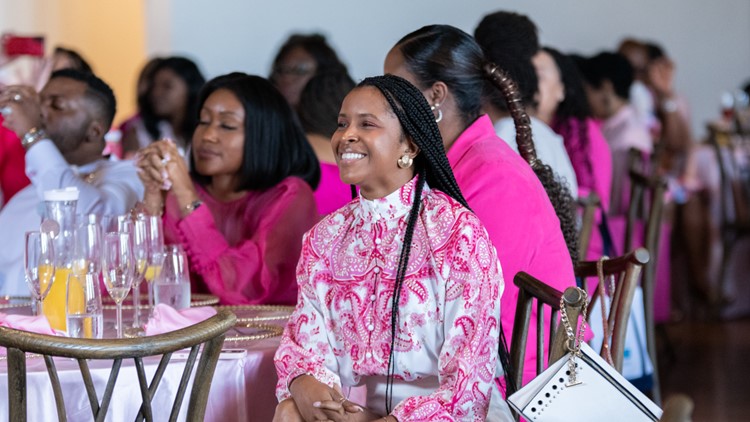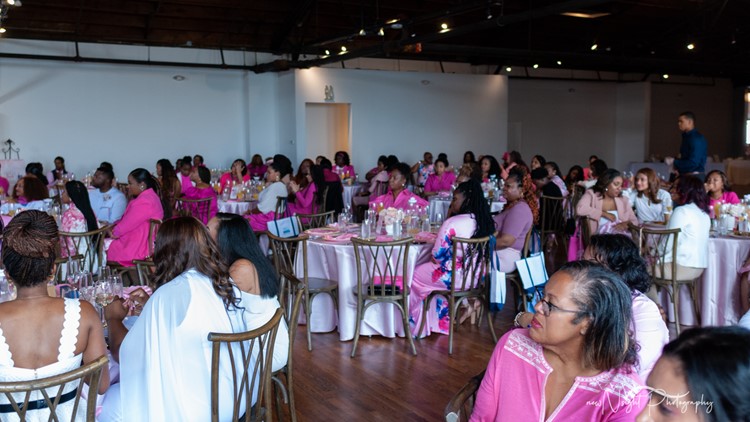ATLANTA — At 23, Ann Marie Swatson experienced something rare for a woman her age - a breast cancer scare.
Ten years later, the Atlanta woman continues to share her story and hopes to empower younger women through her nonprofit to take breast cancer prevention seriously.
"Once I moved the lump, I realized that young women are at a disadvantage and a disconnect when it comes to health care professionals and breast health education. So I decided to fill in that gap," Swatson explains.
In 2013, Swatson filled the gap and founded Painted Pink, an organization focused on educating and empowering millennial women to prioritize breast health.
Atlanta nonprofit holds event for breast cancer community in Atlanta
Since it launched, the nonprofit has advocated and built a community for thousands of Atlanta breast cancer patients and survivors using research and medical professionals.
"Increasing age is the largest or strongest risk factor for women," Dr. Sujith Reddy, Atlanta OBGYN and 11Alive's Medical Expert, said. "The majority of women diagnosed with breast cancer are diagnosed after the age of 70 when the risk is the highest due to age."
Although breast cancer is typically diagnosed in women ages 45 and up, a new study shows breast cancer diagnoses in younger women have increased in recent years.
The government-funded study published in August 2023 looked at more than 500,000 cases of early-onset cancer, or cancers diagnosed in patients under age 50, between 2010 and 2019. It found that overall, early-onset cancers increased over that decade.
After having her breast cancer scare, Swatson acknowledged the reality that breast cancer can and does happen in young women, too.
According to the Centers for Disease Control and Prevention (CDC), about 11% of all breast cancer cases occur in women younger than 45. An estimated 26,393 women under 45 are expected to be diagnosed with breast cancer this year. And every year, more than 1,000 women under age 40 die from breast cancer.
But for younger women trying to catch the disease early - options are limited.
Currently, women under 40 are generally too young for a mammogram screening unless considered at high risk for the disease.
Known as the most common test for breast cancer, mammograms are considered less effective in women under 40 because their breast tissue is generally denser than the breast tissue in older women, making the screening difficult to read.
"In instances where patients may have a very high risk - either perhaps they already had a pre-cancer, they have a strong family history, or they do have a genetic mutation that puts them at higher risk - you may consider screening usually with mammograms, possibly MRI before age 40, but that's going to be individual," Dr. Reddy explained.
The lack of screening methods makes it difficult for younger women to detect the disease. Swatson encourages women to find a provider they are comfortable around, do self-breast exams monthly, and tap into resources like Painted Pink.
It is recommended that women ask their provider if self breast exams are a good idea for them. To learn more about why, click here.
"Painted Pink is a safe space for women to ask the questions that they may not be able to ask someone else and to just understand the breast health community is looking like," Swatson said.
For more information over Painted Pink and the resources they offer, click here.
For more information on breast cancer prevention, click here.





